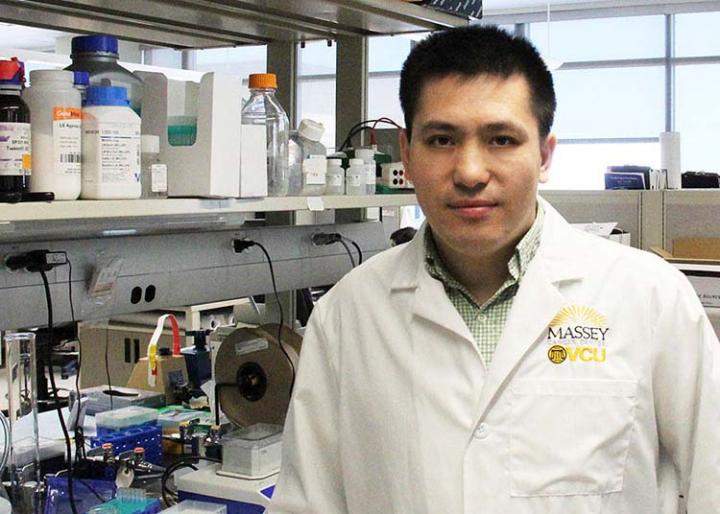
Researchers at Virginia Commonwealth University’s Massey Cancer Center have identified two genes that could be used in the development of novel treatments for virus-associated diseases such as stomach cancer and lymphomas.
The genes under examination, PIAS1 and IRF8, play a crucial role in halting the replication of the Epstein-Barr virus (EBV). EBV assists the growth of several types of cancer and is one of the most common viral infections seen in humans. Around 95% of adults carry it and according to the US Department of Health and Human Services it contributes to almost 200,000 cases of cancer and over 140,000 deaths every year.

Discover B2B Marketing That Performs
Combine business intelligence and editorial excellence to reach engaged professionals across 36 leading media platforms.
Cancers that derive from EBV include Burkitt’s lymphoma, Hodgkin’s lymphoma, nasopharyngeal cancer – a cancer at the back of the nose and throat – and subtypes of stomach cancer.
EBV goes through latent and lytic phases, being dormant in the former and actively replicating in the latter. In tumour cells EBV is typically in its latent phase, though various stimuli can activate it and cause it to grow and replicate. Once the virus is activated it attacks enzymes known as caspases, which are used in the destruction of cells and could prevent EBV’s replication.
The research team at Massey, led by Dr Renfeng Li, found that EBV eliminates PIAS1 to copy itself efficiently. However, they demonstrated that through blocking EBV’s method of genetically removing PIAS1, the gene was able to halt EBV’s replication within the host.
A second study examined the relationship between EBV and IRF8, a protein that controls the development of blood cells. IRF8 was already known to play a key role in a cellular process that helps reactivate EBV (B cell differentiation), but the study proved the depletion of IRF8 to be directly associated with a decrease in EBV activity.

US Tariffs are shifting - will you react or anticipate?
Don’t let policy changes catch you off guard. Stay proactive with real-time data and expert analysis.
By GlobalDataResearchers found IRF8 to regulate the activation of caspase enzymes which destroy KAP1, a gene similar to PIAS1 in its prevention of EBV development. As such, suppression of IRF8 was shown to stabilise KAP1 and deactivate EBV in virus-infected cancer cells.
“This finding represents a striking example of an emerging category of virus-host interactions which should offer insights into understanding and controlling viral pathogenesis,” said Li.
“Due to the unique presence of EBV in cancer cells, our research on EBV life cycle regulation by both PIAS1 and IRF8 can help facilitate the development of novel strategies to wipe out cancers associated with this virus.”
Results from Li’s PIAS1 and IRF8 studies were published in Cell Reports and PLOS Pathogens respectively.





